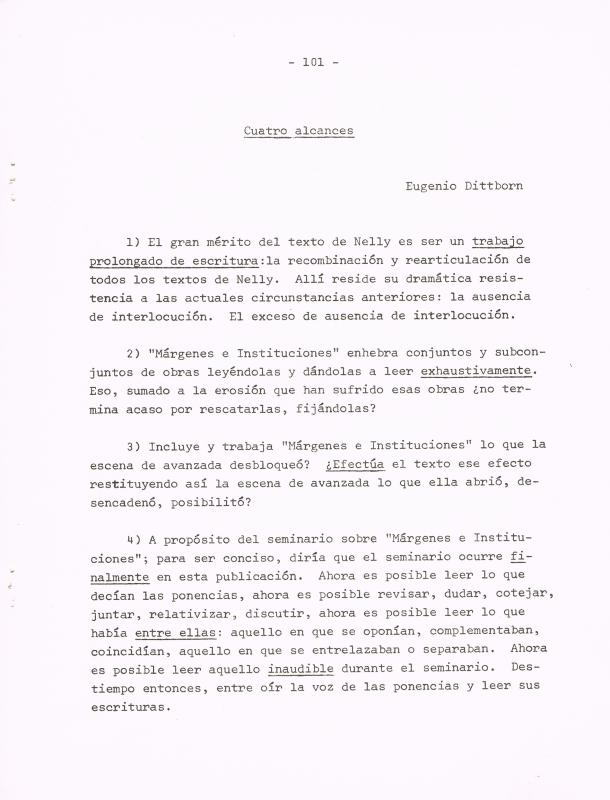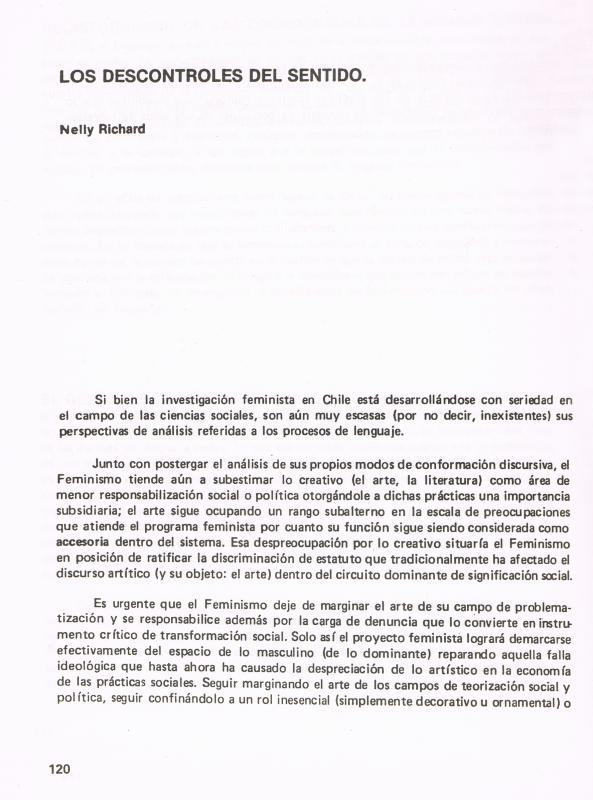“Yacer incubada oval en la fotografía” is an essay by Diamela Eltit (b. 1949) that was among the materials from the seminar Arte en Chile desde 1973. Escena de Avanzada y sociedad published by the Facultad Latinoamericana de Ciencias Sociales (FLACSO), Galería Visuala, and edited by Francisco Zegers. The seminar was inspired by the publication—in Australia (1986)—of Margins and Institutions. Art in Chile Since 1973, the book by cultural critic Nelly Richard (b. 1948); it included artists from the Escena de Avanzada and a number of writers, theorists, philosophers, artists, and social scientists who were closely involved in that process. The texts that were collected and published in Documento no. 46 addressed the “discussion about avant-garde Chilean art after 1973,” as noted in the introduction to the publication, and sought to provide material for analysis and discussion about the relationship between art and society in Chile. Eugenio Dittborn, another member of the Escena de Avanzada, also participated in the seminar, in addition to Eltit [see the following in the ICAA Digital Archive: “Cuatro alcances” (doc. no. 738646)].
Escena de Avanzada was the name that Nelly Richard coined to refer to a number of neo-avant-garde artists and practices that challenged art, its forms of production, and its context in a country governed by a military dictatorship. The movement produced unofficial art that sought to foster critical awareness and a commitment to resistance. The main art practices of the time therefore focused on works that could challenge the dominant culture.
During the period covered in Margins and Institutions. Art in Chile Since 1973, Diamela Eltit was active in various areas. She was a member of CADA (Colectivo Acciones de Arte), developing her own work has a writer and performer, and she wrote about visual art. The art field at that time saw the emergence of an unprecedented writing scene that addressed art production with topics ranging from literature to philosophy to feminist criticism, and explored ideas outlined by Richard, Eltit, and Adriana Valdés (b. 1943). These three wrote about minority issues and repression that were considered women’s themes, allowing them to use an artistic tradition to challenge the dominant discourse that had been bolstered by the military dictatorship [on the subject of Richard’s feminist ideas, see: “Los descontroles del sentido” (doc. no. 732038)].


